Menu
Close
Peer support
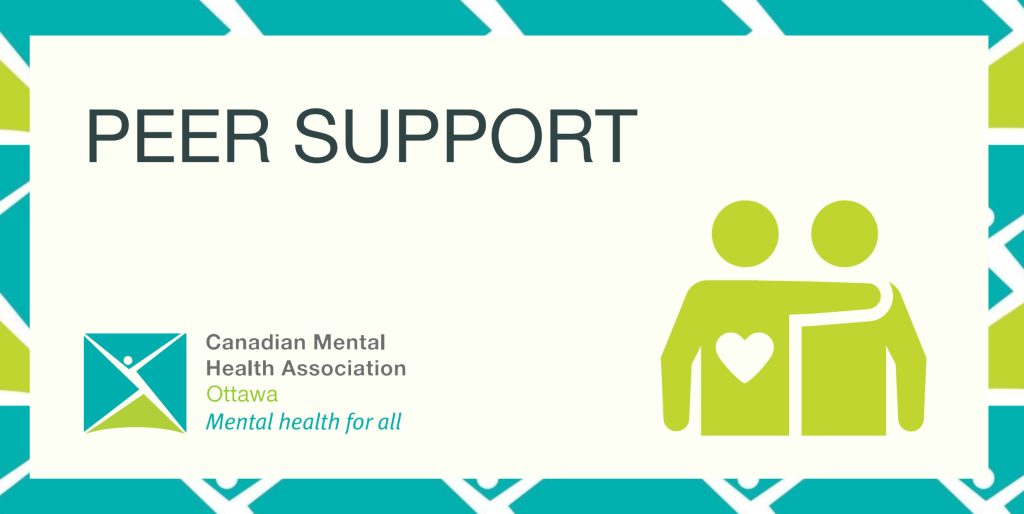
Contents:
- Group Descriptions
- What to Expect from Our Peer Support
- A peer supporter is your fellow traveler on the path to recovery.
- SU
- MO
- TU
- WE
- TH
- FR
- SA
- 30
- 1
- 2
- 3
- 4
- 5
- 6
- 7
- 8
- 9
- 10
- 11
- 12
- 13
- 14
- 15
- 16
- 17
- 18
- 19
- 20
- 21
- 22
- 23
- 24
- 25
- 26
- 27
- 28
- 29
- 30
- 31
- 1
- 2
- 3
Events for July
1st
No Events
Events for July
2nd
No Events
Events for July
3rd
No Events
Events for July
4th
No Events
Events for July
5th
No Events
Events for July
6th
No Events
Events for July
7th
No Events
Events for July
8th
No Events
Events for July
9th
No Events
Events for July
10th
No Events
Events for July
11th
No Events
Events for July
12th
No Events
Events for July
13th
No Events
Events for July
14th
No Events
Events for July
15th
No Events
Events for July
16th
No Events
Events for July
17th
No Events
Events for July
18th
No Events
Events for July
19th
No Events
Events for July
20th
No Events
Events for July
21st
No Events
Events for July
22nd
No Events
Events for July
23rd
No Events
Events for July
24th
No Events
Events for July
25th
No Events
Events for July
26th
No Events
Events for July
27th
No Events
Events for July
28th
No Events
Events for July
29th
No Events
Events for July
30th
No Events
Events for July
31st
No Events
Group Descriptions
Peer Support Drop In
This drop-in online and in-person peer support group is one in which people get together to share the recovery journey and all the common struggles, opportunities and experiences associated with it. It is a confidential and non-judgmental space where people are free to share deeply personal insights, experiences and challenges that come from firsthand experience of living with mental health challenges.
WRAP®
WRAP® is a practical, evidence-based, peer-facilitated self-help recovery education series focused on gaining control in life through self-care, understanding recovery concepts, sharing resources, tools, and strategies, and achieving a higher level of wellness. This group is 8 weeks long. We are happy to say that registration is open. WRAP begins on Wednesday, Sept. 20, 2023, in person at 311 McArthur Ave.
Recovery College
CMHA Ottawa’s Recovery College is a series of virtual workshops on personal recovery in mental health and well-being available exclusively for clients of the agency. The workshops provide an accessible and innovative learning experience where your clients can attend free courses, webinars, workshops, and events to learn, gain new skills, and connect with others in the community. The course curriculum is unique: it is developed by subject experts and mental health professionals, working together with people who have their own experience in personal recovery.
Are you interested in attending a peer group? Please ask your worker to help you get registered!
I’d like to thank the peer team for all the amazing things they do. My clients have greatly benefited from becoming involved! –Nancy, hospital outreach worker at CMHA Ottawa
What to Expect from Our Peer Support
What is Peer Support?
Peer support is a supportive relationship between people who have a lived experience in common. In other words, it’s when we use our collective wisdom to help each other. In this case, we’re supporting each other in our experiences around mental wellness and illness, meeting our needs in a complex system, and finding communities where we connect. Peer support at CMHA Ottawa is based on the intentional style of peer support promoted by the Mental Health Commission of Canada (read more here). We share their core values!
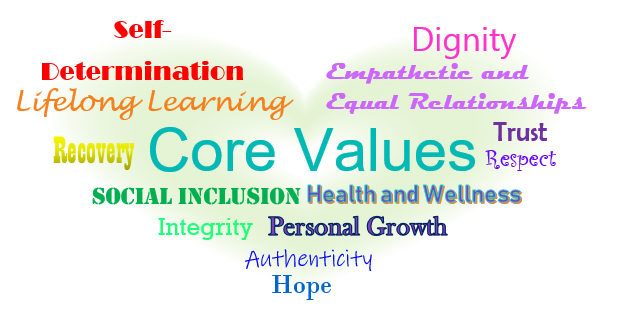
What is a Peer Support Worker?
Peer support workers facilitate our groups. A peer support worker is a person who has lived with mental health issues throughout their life. They have had to develop personal skills and strategies to survive through these issues, and they have had training to make sure that they know how to manage their own well-being and to help you focus on yours. Peer support workers will hold space for you to be yourself without judgement.
What Kind of Programs Do You Offer?
We offer virtual groups three days a week. We provide orientation to the online tools you need and can support you in connecting with us over the phone instead. While we would love to offer one-on-one peer support to everyone, our resources are finite, so while some clients may have access to one-to-one peer support with a referral from their worker, all clients have access to our peer groups. Please reach out to your worker and they can refer you and we’ll then follow up with you!
If you’re not a client of CMHA, or you’re on a wait list, we recommend you visit the, Community Peer Support Resources section of our page.
Am I Ready for Peer Support?
It’s natural to have questions when you’re asked to join something new. The online mental health forum Mind suggests that these reflective questions might help. Some things our peer support workers have found helpful is talking to a facilitator ahead of time to “check the temperature” or see what kind of vibe each group has and to see if it’s a good fit, and to get to know the facilitator ahead of time. We’re open to meeting with you and your case worker ahead of time if it will help you find your comfort zone.
A peer supporter is your fellow traveler on the path to recovery.
History of Peer Support
Peer support started as a grassroots effort
Mental health peer support can be many things for many people – it could look like church, a 12-step meeting, or an art class. Those things may support you in your mental health, but peer support as we know it started as a grassroots effort in the 1980s by people who not only survived and thrived and met mental health challenges together, but also survived a system that was at times patriarchal and oppressive. Mental health systems and social attitudes have evolved a lot over the past 40 years, but these informal peer support initiatives have their foundation in a time when systems were less kind and understanding than they are today. You may hear mental health peer support services referred to as psychiatric survivor services, or as consumer/survivor initiatives. One explanation is that we are both consumers of systems and survivors of them and of our mental health challenges. Present day emphasis is on initiative, with the attitude of “nothing about us without us.”
Other Ottawa-Area Support Groups
These groups are independent of CMHA Ottawa and available to everyone.
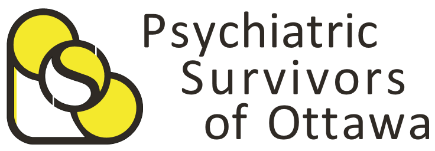
Psychiatric Survivors of Ottawa (PSO) has been active in Ottawa since 1992. They have uniquely advocated for funding to create a peer support program that runs directly out of local hospitals, connecting people with peer support services as they transition from psychiatric units back into their communities. They continue to provide workshops, creative programming, and to run a drop-in program, which means they provide both formal and informal peer support.
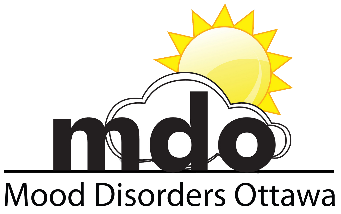
Mood Disorders Ottawa (MDO) started locally in 1986 and has successfully continued to be volunteer-run ever since. They share their history here in their celebration of 25 years of peer support. They provide structured and unstructured workshops as well as regular peer support groups, providing both formal and informal peer support.
Mental health peer support in Ottawa looks like many things. While there are many peer support organizations in Ottawa, here we’re highlighting some longstanding consumer/survivor initiatives. We have more resources to share with you in our community resources section.
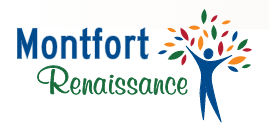
Ateliers de l’Élan: English | Francais
“This program aims to support Francophones struggling with a mental health disorder in their recovery process and to encourage them to participate in community activities. The Ateliers de l’Élan’s program offers various activities to promote the recovery of each participant, including artistic, physical, recreational and educational activities. The artistic expression component of the program offers various workshops that foster the development of expressive talent through theatre, music, writing, painting and drawing, among others. Physical activities allow participants to develop healthy life habits and improve their physical fitness. For example, a walking club, fitness classes or yoga workshops are offered at the Ateliers de l’Élan. The recreational component offers leisure activities such as seasonal, cultural and social outings in order to encourage participants to have fun, to entertain themselves, to create and maintain social ties and to participate actively in the community. The recovery component offers activities that are relevant to the unique recovery approach of each person in order to enjoy an active and satisfying life.”
Community Peer Support Resources
Local
A local guide to peer support organizations and other helpful resources for people in recovery, called Rollercoaster to Recovery, can be downloaded for free with an email registration.
Provincial

Mood Disorders Association of Ontario
National
Coming soon.